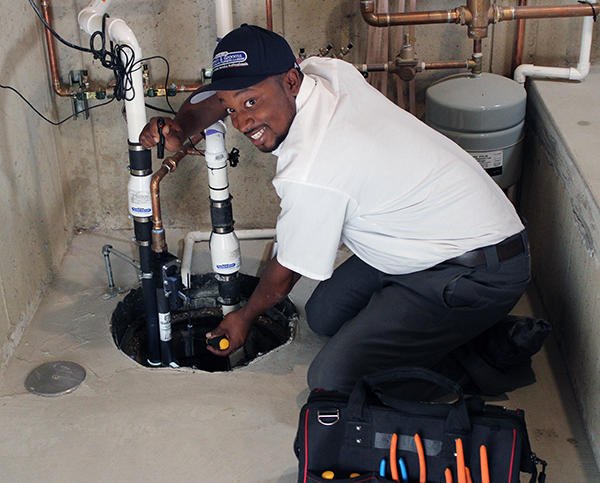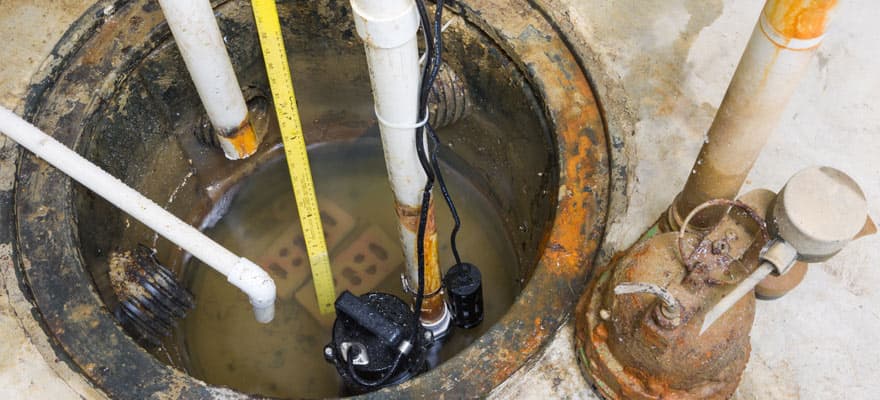Comprehensive Water Treatment Solutions: Guarding Your Family's Health and Well-Being
Comprehensive Water Treatment Solutions: Guarding Your Family's Health and Well-Being
Blog Article
Understanding the Key Components of Effective Water Filtration Systems

Relevance of Water Purification Solution
Water filtration systems play a crucial duty in making sure access to tidy and risk-free drinking water by effectively removing contaminations and pollutants. These systems are important in dealing with the expanding worries over water quality and the possible health threats connected with consuming polluted water. By utilizing different filtration systems such as reverse osmosis, activated carbon, and UV sanitation, water filtering systems can successfully eliminate harmful materials like bacteria, viruses, heavy steels, and chemicals from the water system.
Moreover, water filtering systems help to enhance the preference and odor of water by getting rid of chlorine, debris, and various other pollutants that can impact its top quality. Well Pump Replacement. This enhancement in water high quality not just makes it more palatable yet also encourages individuals to consume alcohol a sufficient quantity of water daily, advertising better hydration and overall health and wellness
Kinds of Filtration Components

Physical filters are developed to literally stress out contaminations from the water. These filters can be made of materials like ceramic, carbon, or even sand, and they function by capturing particles larger than the filter's pores as water travels through.
Chemical filters utilize numerous chemical procedures to get rid of impurities from the water. Instances include activated carbon filters, which adsorb impurities, and reverse osmosis membranes, which make use of stress to different impurities from the water.
Biological filters utilize living organisms like bacteria or algae to break down raw material and contaminants in the water. These filters are commonly utilized in wastewater therapy plants or all-natural water filtration systems.
Recognizing the various kinds of filtering components is essential for selecting the most suitable water filtration system for details filtration requirements.
Feature of Sediment Filters
Sediment filters play an important function in water filtering systems by efficiently capturing strong fragments suspended in the water. These filters are usually the first line of protection in a purification system, eliminating bigger bits such as sand, silt, dust, and rust before the water relocates through finer filtering phases. By trapping these debris, the filters prevent them from reaching downstream parts, thus prolonging the life expectancy and performance of the entire system.
The feature of debris filters is vital in preserving water top quality and shielding sensitive equipment from damages caused by particles. Furthermore, by eliminating noticeable fragments, sediment filters improve the clarity and preference of the water. Consistently cleaning up or changing debris filters is essential to guarantee ideal efficiency. Disregarding this upkeep can lead to blocking, minimized water circulation, and endangered purification efficiency. Overall, sediment filters are vital elements that add considerably to the performance of water filtering systems.
Duty of Activated Carbon Filters
Playing a critical role in water filtering systems, triggered carbon filters contribute in removing pollutants and pollutants from the water. These filters are designed to adsorb and trap a vast array of contaminants, including chlorine, unstable natural substances (VOCs), chemicals, and herbicides. The turned on carbon product has a large surface, allowing for the effective trapping of pollutants with a procedure called adsorption. As water goes through the filter, the activated carbon holds and attracts onto the pollutants, guaranteeing that the water that comes out beyond is cleaner and much safer for usage.
Triggered carbon filters are extremely effective at improving the preference and smell of water by decreasing chemicals that can affect its high quality. They are likewise capable of removing particular hefty metals like lead and mercury. Additionally, these filters can aid stop the accumulation of bacteria and algae in water, more his response improving its overall look at this website top quality. As a result of their adaptability and integrity, triggered carbon filters are an essential component in making certain that water is cleansed to the highest criteria before getting to consumers.
Understanding Reverse Osmosis Solutions
Reverse osmosis systems are sophisticated water purification systems that use an advanced procedure to remove contaminants and pollutants from alcohol consumption water. These systems function by applying pressure to the water, forcing it with a semi-permeable membrane layer.
One trick benefit of reverse osmosis systems is their ability to remove a large range of impurities, including heavy metals, dissolved microorganisms, infections, and solids. This makes them highly efficient in improving the overall high quality and security of drinking water. Furthermore, reverse osmosis systems are fairly low-maintenance and can be set up under the sink or in a central filtering system, offering practical access to clean water throughout the household. Overall, understanding how reverse osmosis systems function can assist individuals make notified decisions about their water filtration demands.
Final Thought
Finally, effective water purification systems are critical for making sure secure and tidy drinking water. The vital parts of these systems include debris filters, triggered carbon filters, and reverse osmosis systems. By recognizing the feature and role of each part, individuals can make enlightened choices when selecting a water purification system. It is very important to prioritize the top quality of water in order to promote overall health and wellness and well-being.
Water purification systems play a vital role in making sure accessibility to safe and clean alcohol consumption water by effectively eliminating impurities and impurities. By making use of different filtration systems such as reverse osmosis, turned on carbon, and UV sterilization, water filtration systems can effectively remove hazardous compounds like microorganisms, infections, heavy metals, and chemicals from the water supply.
Sediment look at this website filters play a critical role in water filtering systems by effectively catching solid bits put on hold in the water (Water Treatment).Playing a crucial role in water filtration systems, triggered carbon filters are critical in getting rid of contaminations and contaminants from the water supply.Reverse osmosis systems are advanced water filtration systems that employ a sophisticated process to eliminate pollutants and pollutants from drinking water
Report this page